Yuba Community College District students come from a variety of places
all over the state — and the world — where laws and other
regulations vary. While in California, and on the Yuba Community College
District Campuses specifically, you are required to obey all applicable
laws, including state, federal, and municipal codes. As a Yuba Community
College District student, you are also required to adhere to campus codes,
rules, and regulations. We hope you will help contribute to the safety
of the campuses by following these guidelines. For more information on
California State Laws, visit http://www.leginfo.ca.gov/calaw.html
Rules of Conduct in Campus Buildings
The buildings on the Yuba Community College District campuses are for
appropriate use and enjoyment by students, faculty, staff, and visitors.
The following policies have been established to promote the safety and
security of all occupants and visitors:
- Follow all posted building rules restricting use or access.
- Duplicating or distributing keys or card keys without authorization
is a violation of the Campus Access Control Policy, and is punishable
under section 469 of the California Penal Code. - Assisting unauthorized access to buildings or propping open exterior
doors, against building security policies, is a violation of the Campus
Access Control Policy. - Lodging overnight, except in residential facilities or for academic
purposes, is prohibited. - Adhere to all campus fire safety rules, including prompt, orderly
evacuation in case of alarm. - Intentionally initiating a false fire alarm is a violation of California
Penal Code Section 148.4a punishable by a 1,000 fine or a one-year jail
sentence - Disrupting classroom, administrative, or other College-sponsored
or approved activities can result in arrest by YCCDPD, enforcement by
the Office of Student Services, and/or expulsion from the campus. - Smoking in buildings is prohibited by campus policy and State law.
When smoking outside, keep enough distance to ensure that tobacco smoke
does not enter buildings. Sections 7596-7598 of the Government Code
prohibit smoking within 20 feet of main entrances, exits, and operable
windows of any building owned, leased, and occupied by a California
community college. Use of tobacco products on the Woodland campus is
prohibited. - Riding mopeds, bicycles, skateboards, roller blades, or skates is
prohibited in buildings or on walkways where hazards could be created
by their use. In accordance with the fire marshal policy, vehicles may
not be stored in any public spaces, hallways, corridors, or stairwells,
or attached to railings. Bicycles may be stored in non-public space
sanctioned, or authorized, in buildings by departments or building coordinators/
managers. - Animals (except laboratory animals) or those assisting disabled persons,
or as otherwise authorized are not to be brought into buildings - Use of campus or departmental bulletin boards must be authorized
by the department, or by the building coordinator/manager. - Tampering, misuse, abuse, or destruction of emergency equipment or
other College property is a violation of Penal Code Sections 148.4 and
594(b).
Disciplinary Action
Responsibility for pursuing campus disciplinary actions involving
students rests with the Office of Student Services, which reports to the
President. The office is also responsible for notifying the Yuba Community
College District Director of Safety & Risk Management and Title IX Compliance Officer of
any allegations of sexual assault. At the direction of the Title IX Compliance
Officer, the Office of Student Services will conduct an investigation
of the allegations in the case and interview any witnesses. The campus
has jurisdiction over offenses by students that occur on College property
such as classrooms, in other locations in the immediate vicinity of the
campus, during official College functions, and off campus.
Pending a formal disciplinary hearing, the campus may take a variety of
administrative measures against a charged student, including restriction
of privileges and services, interim suspension, and exclusion from certain
campus areas, such as classrooms.
To prevent further conflict between the parties, the campus may use administrative
reassignment procedures to limit access to a specific hall or complex
during the course of a campus or criminal investigation, or make academic
accommodations as appropriate for either party. Normal student conduct
procedures will be followed in resolving allegations of sexual misconduct,
with the following exception: a hearing in a case concerning allegations
of sexual misconduct may be closed to the public if the hearing body determines
that the privacy rights of a witness, including those of the individual
who reports being assaulted, may otherwise be jeopardized.
Disciplinary actions that may be imposed from the Student Services process
may include but are not limited to: written warning, disciplinary probation,
loss of privileges and exclusion from activities, exclusion from areas
of the campus, restitution, College service, monetary fines, records hold,
suspension, dismissal, deferral or withholding of degree, revocation of
degree previously conferred, stay of sanction, or other actions.
